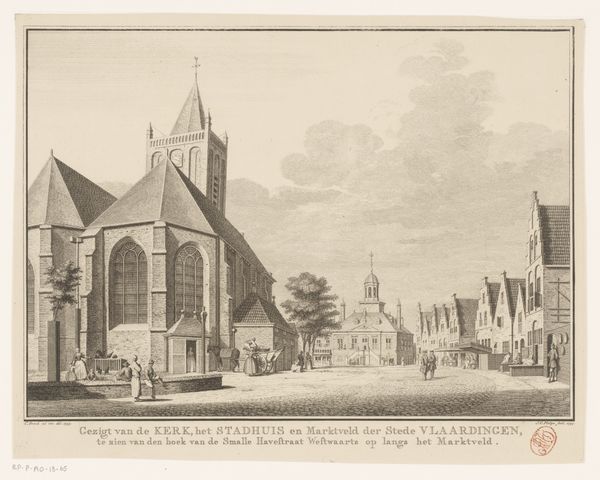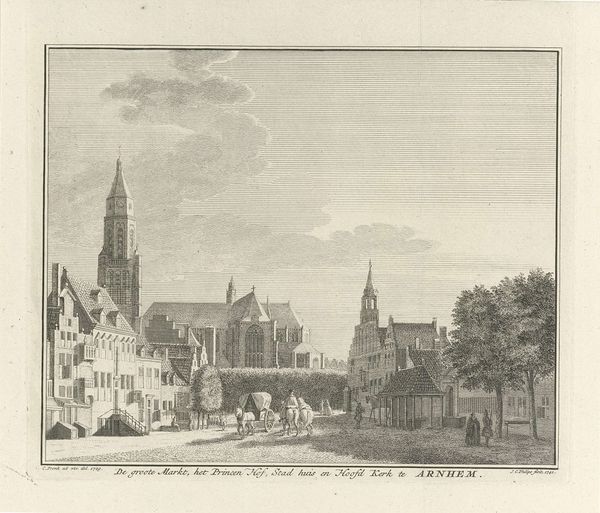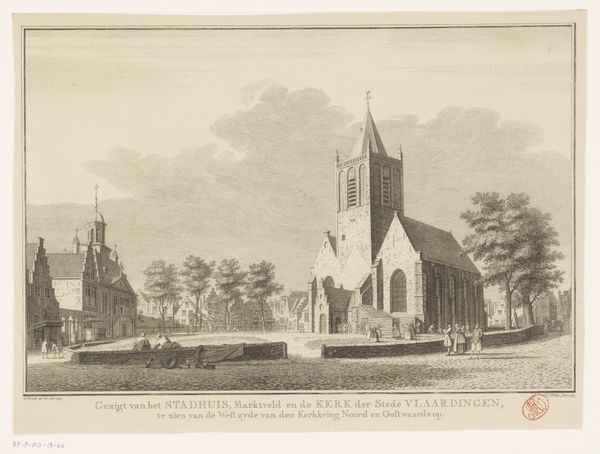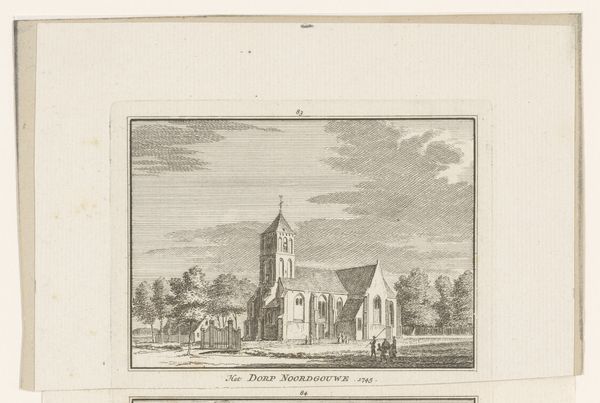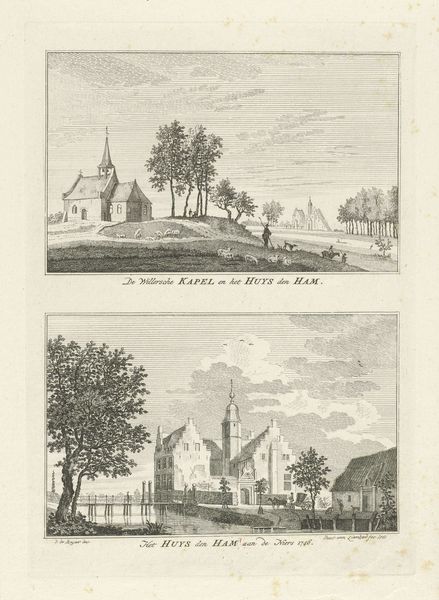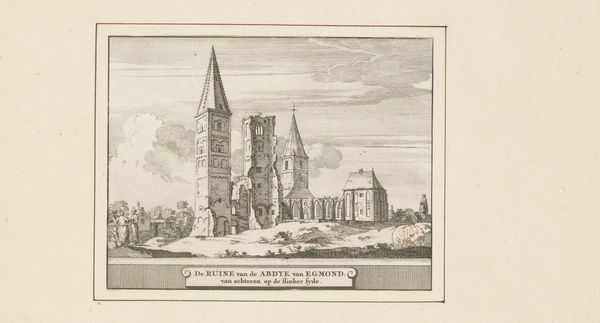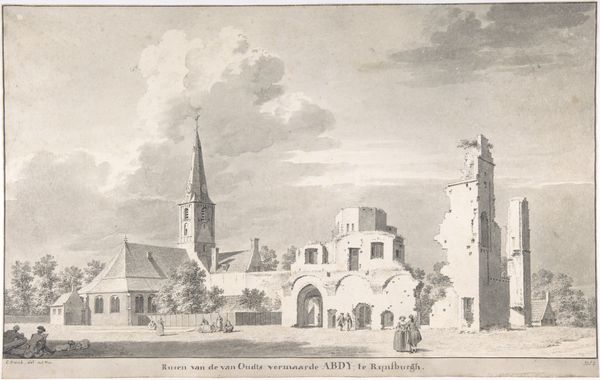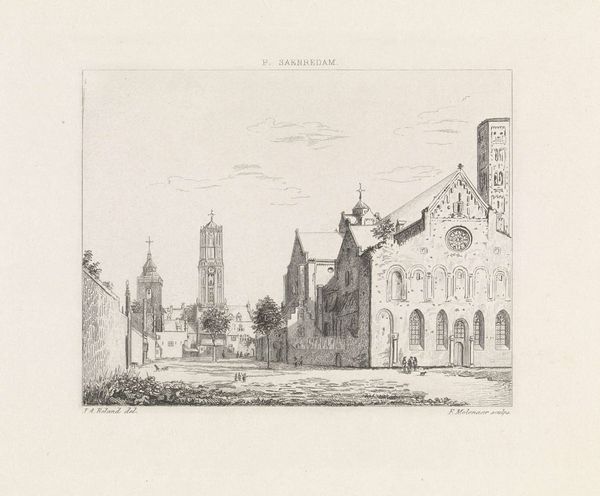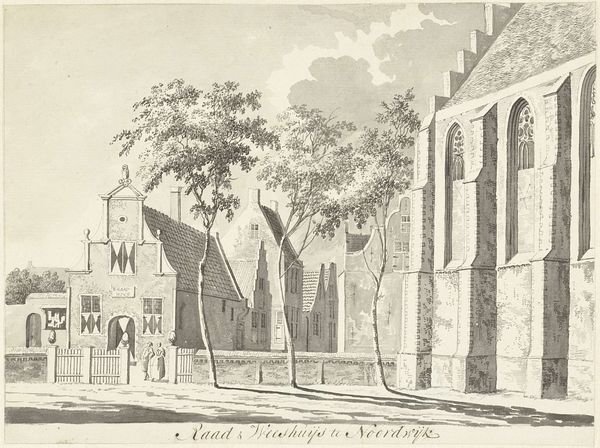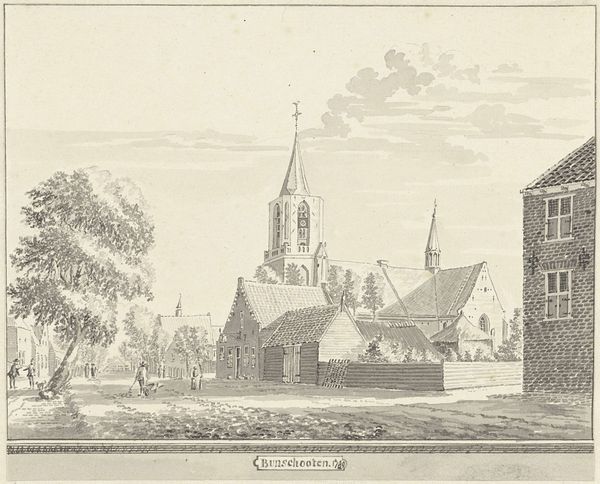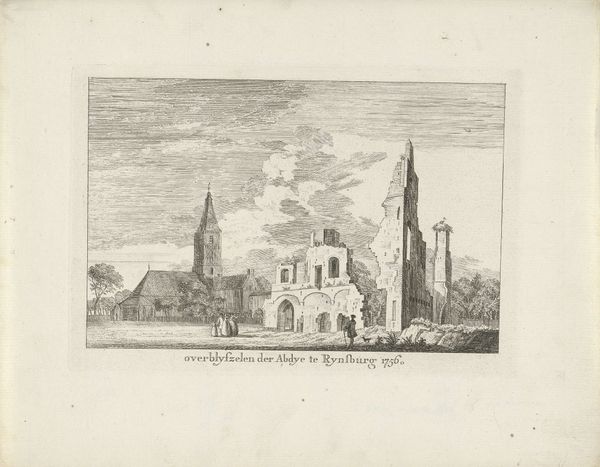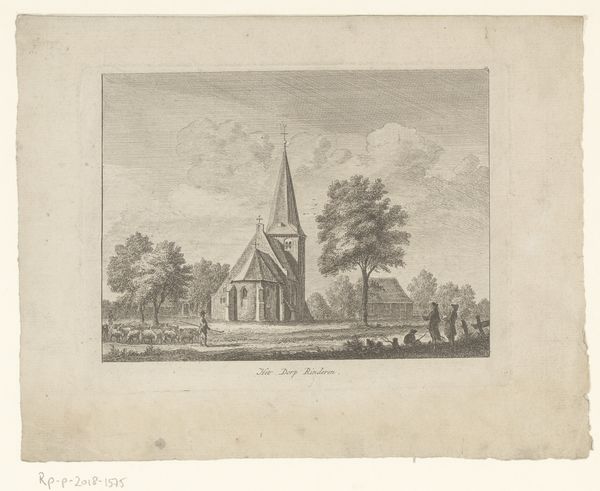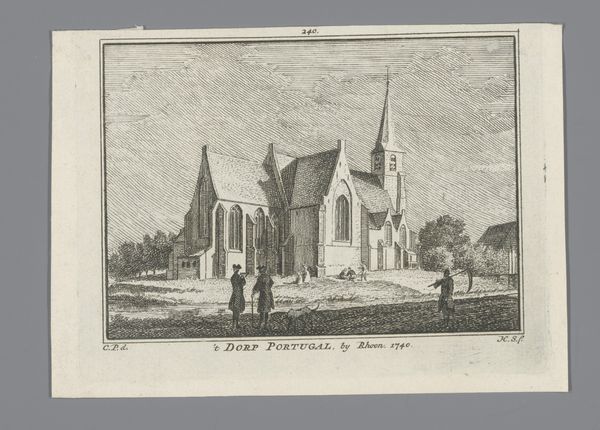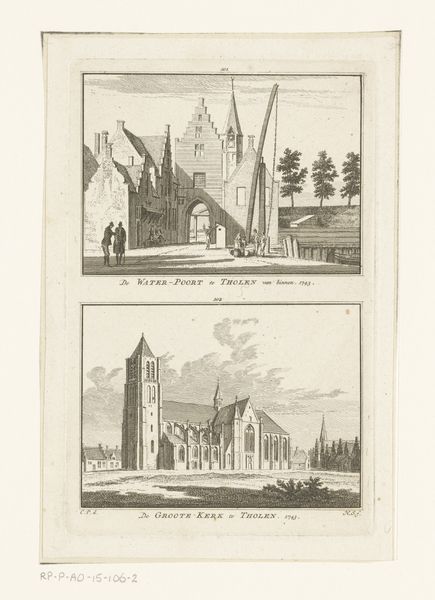
drawing, print, etching, pencil
#
drawing
#
neoclacissism
# print
#
etching
#
pencil sketch
#
landscape
#
romanticism
#
pencil
Dimensions: height 213 mm, width 315 mm
Copyright: Rijks Museum: Open Domain
Hendrik Schwegman created this print of the Abbey Church at Egmond in 1798. At first glance, it presents a simple architectural study. Yet, look closer, and you’ll see it depicts not just a building, but the ravages of history and revolution. Made in the Batavian Republic, a satellite state of Revolutionary France, this image encapsulates the anti-clerical sentiment of the era. Note the deliberate contrast between the intact tower on the right and the ruined one on the left. This contrast underscores the decline of religious authority and the shifting power dynamics in the wake of the French Revolution. The church, once a symbol of stability, is now presented as a site of ruin. To fully understand this image, we need to explore the historical context: the rise of republicanism, the suppression of religious orders, and the changing role of the church in society. Prints like this one served as visual propaganda, shaping public opinion and reinforcing the new political order. Art historians consult archives and period publications to uncover the complex relationship between art, politics, and social change.
Comments
No comments
Be the first to comment and join the conversation on the ultimate creative platform.
